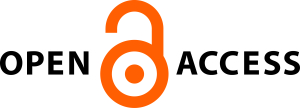Work-Life Balance of Women Employees in Banking and Insurance Industries
Abstract
This paper examines factors affecting the work-life balance (WLB) of women employees in Nepal. It also
explores the factors promoting WLB. This study adopts a qualitative research approach to assess the factors
affecting the WLB of women employees and explore the factors that promote their WLB. 76 women
employees (including clerical, officer, and executive level staff) are the key participants of this study. Data
from these employees was gathered using a purposive sampling strategy. The results reveal that the key
factors affecting WLB include work overload, long and unpredictable hours, family responsibilities, dual
roles, performance pressure, client-centric focus, job demand, constant connectivity, economic pressures,
and insufficient maternity and parental leave. On the other hand, the key factors promoting WLB include
reasonable workload, self-awareness, supportive management, flexibility, employee assistance programs
(EAPs), availability of support services, leave policies, continuous learning, time management skills and
social support systems. WLB's significance is particularly substantial for women in patriarchal societies like
our own because of cultural norms that place significant obligations on working women to fulfill domestic
duties even when they engage in income-generating jobs outside the home. The study of WLB among
female employees in the banking and insurance sectors is an important field of research with broad
implications for gender equality, employee well-being, and organizational performance. This study
provides insightful information that will benefit employees as well as organizations. By recognizing and
resolving WLB issues, organizations can improve work environments, advance gender equality, and boost
overall performance. Therefore, today's business organizations need to focus on some of the initiatives that
promote the WLB of their employees.


